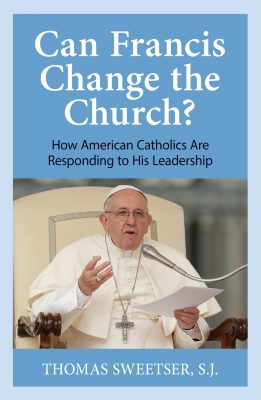Response to the Abuse Issue
Listening Sessions In Catholic Parishes
In July, 2018, a popular American cardinal, Theodore McCarrick, was forced to resign because of allegations of sexual abuse. In August, 2018, a grand jury report was released by the attorney-general of Pennsylvania that chronicled seventy years of sexual abuse by clerics and a systematic cover up by bishops in six dioceses. The wide-spread response of anger, sadness and disgust was immediate. Catholic parishes throughout the country held listening sessions and town hall meetings at which parishioners gathered to express feelings, offer responses and suggest possible actions. One example was at Blessed Sacrament Parish in Washington, DC. Those attending asked that the laity be consulted and included in all significant areas of Church and parish decision making.
A Sampling of Opinion
From 2011 to 2018, I have been interviewing a group of once-active Catholics of all ages and backgrounds from across the United States. In recent years they have pulled away from participating in leadership roles in the Church and local parish, and in some cases, from attending Mass on a regular basis. Of the 55 people included in this study, 60% have remained in the Catholic Church and 40% have chosen to withdraw their membership to join another church or remain unaffiliated. These people were interviewed three times during the research, once before Francis became pope, again after his fourth year in the papacy, and a third time this summer following the events surrounding the sexual abuse issue. The people’s responses from this last round of interviews provide insights into how a selection of former and current Catholics viewed these critical events and changes they proposed for moving forward.
Suggested Changes In The Church
Peggy, who is no longer a practicing Catholic, offered this suggestion, “I think that anytime a child is sexually abused, it has to be reported to the police. Those in charge don’t even talk to the person accused. Let the police deal with the crime that was committed.” Mike felt the problem begins before ordination, when future priests go through formation. “There is a need to rethink the priesthood in the Church, more as being a shepherd. My impression is that those coming out of the seminary are climbing back up on the pedestal. They want to be seen in that role. Priestly formation needs to have more to do with humility and the servant model of priesthood.”
Those who still remain Catholic had much to say about what changers are necessary. The responses are grouped under three headings: the involvement of the laity, the role of women and the requirements for ordination. For instance. Ed called for a complete change in Church governance. “The task is enormous, the resistance is palpable and seemingly impossible, but a deep conversion is essential. Is it time to convene a Vatican Council III, but this time with deliberative decision making power by the whole Church, the People of God?” Anne proposed an oversight committee, or as she called it, “An independent Inquiry Board comprised entirely of lay people. It needs to look into the basic flaw that has exempted bishops from the sexual abuse process.” On the local level, Danielle suggested, “Calling more lay people to active participation in our parishes, churches and dioceses. Our voices are needed if we are to grow spiritually in our discipleship. It is time to be partners with our parish priest, and if we have to, train him!” Joanne addressed the problem of clericalism. “The hierarchy must begin to truly share power and leadership in a meaningful way. I want to trust that the Holy Spirit is working and that God will not abandon us.” Finally, these positive thoughts came from Ginny, “This is a good moment for the Church. There needs to be a new way of including non-clerics, including women, in the decision making of the Church, new structures of shared decision making.” 


